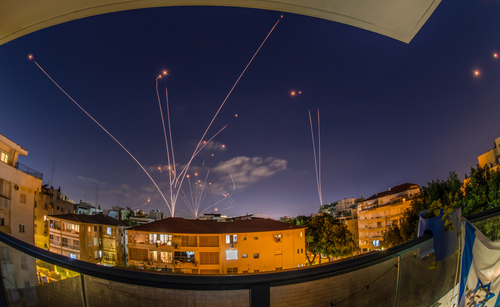
The escalating crisis in the Gaza Strip left approximately two million people trapped in a region roughly the size of Philadelphia. The area, with its high population density, is about 15 times denser than Israel, making it one of the most densely populated regions globally.
In response to terror attacks, Israel has halted essential services provided by Israeli-controlled entities to the Gaza Strip. This includes the supply of water and energy, which are crucial for the survival and well-being of the inhabitants.
The Israeli government refers to this action as a ‘siege’ of Gaza, which involves denying food, energy, fuel, water, and medicine to the region.
LATEST: Shocking! Israel air force drops white Phosphorus bombs on Gaza#Israel #Gaza #IsraelPalestineWar #Hamas #طوفان_الأقصى | #IsraelAtWar | #طوفان_القدس #GazaUnderAttack pic.twitter.com/mlHxjpnr2z
— Shehzadiii~💙 (@KHAAAN2743) October 11, 2023
The situation has been further exacerbated by retaliatory Israeli airstrikes, which have reportedly resulted in an estimated 765 deaths and over 4,000 injuries, according to the Gaza Health Ministry.
Among the casualties are 14 Americans, while an unknown number are allegedly being held hostage by Hamas.
Adding to the complexity of the situation, there are reports of potential attacks on Israel from Syria, which could potentially broaden the conflict regionally. This development could further destabilize the already tense situation and lead to more casualties and destruction.
Meanwhile, the Rafah Crossing, Gaza’s only access point to Egypt, has been closed indefinitely following repeated bombings by Israel. This closure was announced by Egypt after the Israeli bombardment of the Gaza Strip began to impact the Egyptian side of the crossing.
This move effectively trapped the residents of Gaza, as all exit points are now closed.
If anyone wonders why Israel forces shooting buildings in the middle of Gaza stripe cities, here is a video. Shows lvl of hipocrisy from Hamas and palestinians. pic.twitter.com/8xcLlNYVwR
— ZOKA 🇺🇦🇮🇱 (@200__zoka) October 10, 2023
In a stern warning, Israeli President Benjamin Netanyahu asked the residents of the Gaza Strip to evacuate immediately as the Israeli military prepares to take retaliatory measures against the terrorists.
However, with all exit points closed, the residents have nowhere to go. Netanyahu stated he plans to turn the Gaza Strip into ‘rubble’ and warned the inhabitants will pay an ‘unprecedented price.’
The current crisis in Gaza is a stark reminder of the complexities and challenges associated with achieving lasting peace in the region. As the situation continues to unfold, the international community watches with bated breath, hoping for a swift resolution that minimizes further loss of life.










